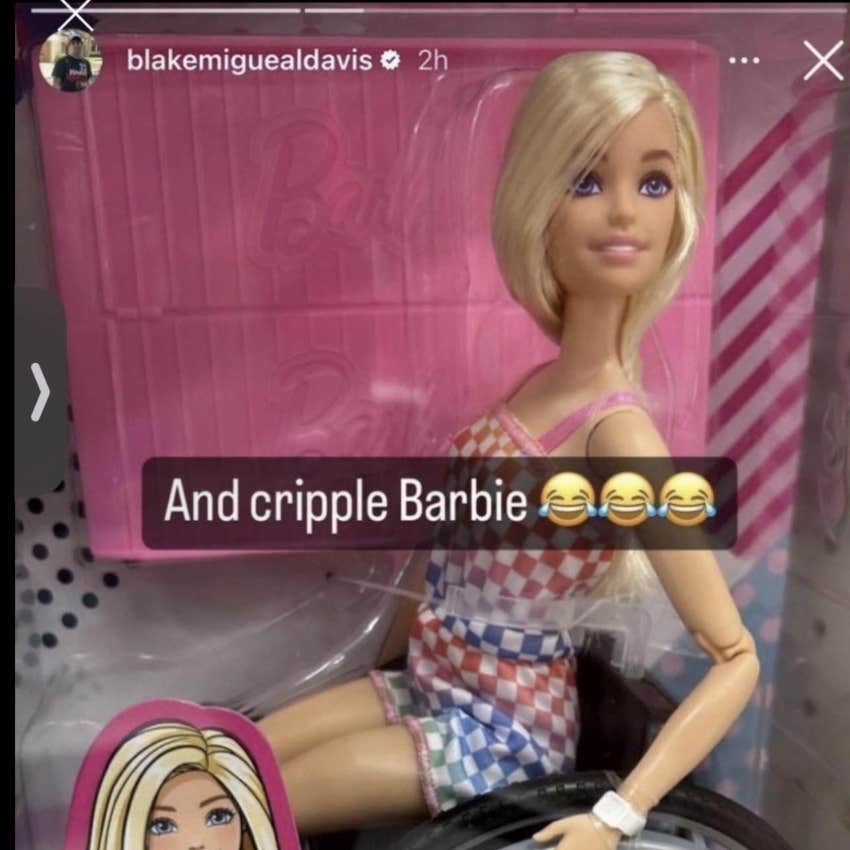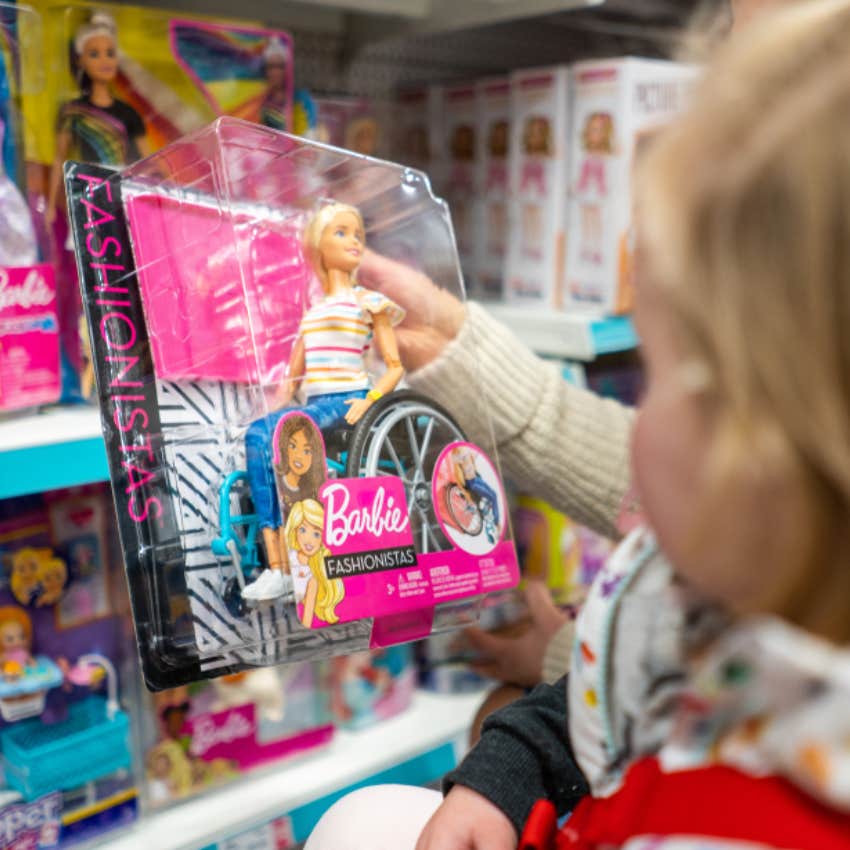Fans Call Out 'Selling Sunset’ Realtor Emma Hernan’s Alleged Boyfriend For Being A ‘Bigot’ After He Posts Instagram Story Criticizing A Barbie In A Wheelchair
"Next we're gonna have a Barbie with a beard."
 Emma Hernan | Instagram | Lana_Art | Canva
Emma Hernan | Instagram | Lana_Art | Canva Reality star Emma Hernan has found herself the subject of drama completely unrelated to throwing food off a balcony after her alleged new beau posted a shocking and ableist photo on his Instagram story.
Hernan's supposed boyfriend thinks Mattel is being far too inclusive by making Barbie dolls representing all different body types.
‘Selling Sunset’ star Emma Hernan’s supposed boyfriend is being labeled a ‘bigot’ by fans of the show after posting a picture criticizing a Barbie doll in a wheelchair.
Fans of the hit reality show on Netflix that documents the lives of realtors from the Oppenheim Group, a high-end real estate brokerage firm in Los Angeles and San Diego, are questioning 32-year-old Hernan’s choice of men after Blake Davis, her supposed boyfriend, made an alarming post on Instagram about Barbie dolls.
In an Instagram story, Davis posted a photo of a Barbie doll in a wheelchair. He appeared to have a problem with a doll that had disabilities being sold, writing “Cripple Barbie” with crying emojis. “Next we’re gonna have Barbie with a beard.”
 Reddit
Reddit
In a separate Instagram story, Davis revealed that he was shopping for a birthday present for his niece when he came across the dolls.
He also appeared to have an issue with a plus-sized Barbie being on the shelves, writing, “Why do they have a fat Barbie?”
Although Davis has since deleted his Instagram account, many people claim that this was not his first time posting something so controversial or offensive on the Internet.
 Reddit
Reddit
“I hear he is very outspokenly anti-LGBT+,” one Redditor alleged.
“This is all unfortunately true, and this isn’t even the worst of the screenshots I’ve seen on Reddit,” another user claimed. “Very disappointed in Emma, but I guess money talks louder than her morals. He happens to be a billionaire.”
Hernan and Davis have not publicly announced that they are a couple.
Hernan was first linked with Davis after a video captured by a fan at a Los Angeles restaurant showed the two walking in together and holding hands.
Davis is a Georgia native who currently resides in Florida. Like Hernan, he is a licensed real estate professional.
He owns Creek Water Capital, a company that operates in the Venture Capital and Private Equity industry, although you'd be hard-pressed to find any info about the firm online.
While he certainly boasts quite the resume, if he really shared the Instagram posts, his character would not be as impressive.
Inclusivity in children’s toys is definitely something we could use more of because representation matters.
Children often see themselves in the toys they play with, and having toys that reflect their appearances allows them to feel seen and valued.
Seeing that people who are just like them are worthy of representation contributes to a healthy self-image and confidence.
Inclusive toys help more than just underrepresented children. They also allow other children who do not encounter the same struggles to understand and relate to them more.
It fosters a sense of empathy and respect for diversity at a young age and combats prejudice and discrimination depicted by Davis.
 RMC42 | Shutterstock
RMC42 | Shutterstock
Thankfully, toys that depict disabilities are appearing on more toy store shelves by the day.
In 2015, writer and journalist Rebecca Atkinson founded ToyLikeMe, a nonprofit organization starting conversations about disability awareness and representation by demonstrating them in children’s toys.
“As someone who had grown up wearing hearing aids, I remembered firsthand how it felt to be a child who never saw themselves represented by the mainstream and what that can do to a child’s self-esteem,” Atkinson shared on the ToyLikeMe website.
"To exclude in the toy box teaches ALL children it’s OK to exclude in real life. I wanted to change this for generations to come by getting global brands like Lego, Mattel, and Playmobil to include positive representations of disability in their products.”
Toys that represent individuals with disabilities are already promoting a sense of acceptance and understanding among able-bodied children.
Academic research by Dr. Sian Jones at Queen Margaret’s has found that after playing with disabled toys for just three minutes, children develop a more positive and friendly attitude towards their peers with disabilities.
While Davis may not understand the purpose of inclusivity in children’s toys, his niece may just believe otherwise and would love to receive a Barbie in a wheelchair for her birthday.
Megan Quinn is a writer at YourTango who covers entertainment and news, self, love, and relationships.

